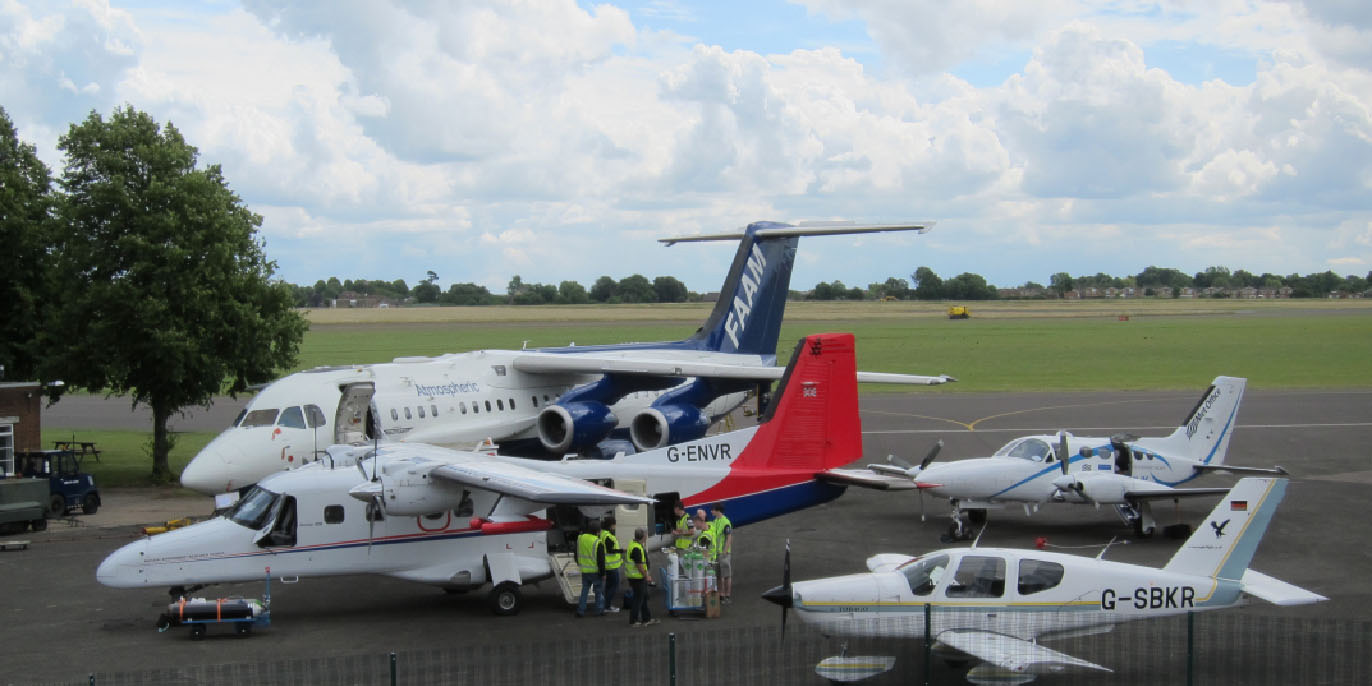About EUFAR
Welcome to EUFAR, The unique pan-european portal and network for airborne research infrastructures dedicated to environmental sciences.
Created in 2000, EUFAR was born out of the necessity to create a central network for the airborne research community in Europe with the principal aim of supporting scientists, by granting them access to research aircraft and instruments otherwise not accessible in their home countries. In this way, scientists all over Europe can have an equal chance to carry out various atmospheric and in situ measurements onboard research aircraft. In essence, EUFAR links scientists with operators of research facilities, and financially supports this collaboration by providing funding for flight hours as well as for travel and subsistence during campaigns.
With time EUFAR has grown, introducing new activities and objectives to place itself as the unique network and portal of airborne research for the environmental and geosciences in Europe. From organising summer schools, and expert workshops, and serving as an interactive and dynamic hub of information, to maintaining a central data archive, and developing tools and standards to collect, process and analysis data, EUFAR continues to improve the operational environment for conducting airborne research.
The European Facility for Airborne Research (EUFAR) is a collaborative network dedicated to advancing airborne research in environmental and geosciences across Europe. EUFAR promotes scientific collaboration, supports innovation, and enhances research by providing access to a wide range of airborne platforms and instruments.
Our Purpose and Objectives
- Facilitating Access: EUFAR enables researchers to access diverse airborne facilities for high-quality data collection in atmospheric, environmental, and earth sciences.
- Promoting Collaboration: We foster interdisciplinary and international collaboration, bringing together experts from different fields, leading to the development of joint priorities for airborne science and to the harmonised development of future airborne observing systems.
- Standardizing Data: EUFAR works to standardize data formats and methodologies, ensuring consistency and high-quality outputs across airborne research projects.
- Knowledge Sharing: We support the transfer of relevant technologies and facilitate collaboration between airborne research communities in Europe and beyond.
- Community Engagement: EUFAR connects the airborne research community by organizing conferences, seminars and webinars.
- We aim to expand Open Access and increase our involvement in organizing campaigns.
